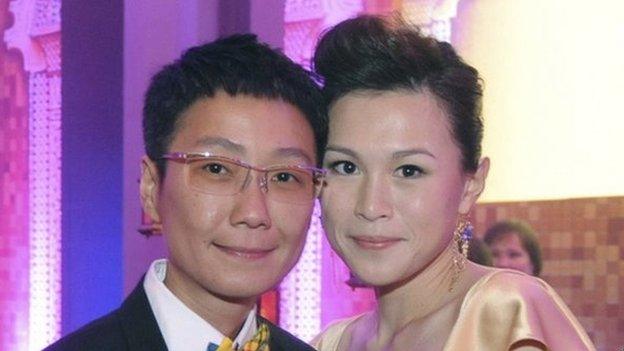Gay woman challenges Hong Kong in landmark trial
- Published
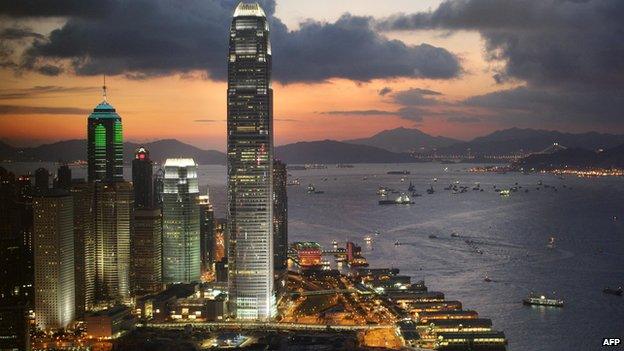
Hong Kong: 'Asia's World City'?
Hong Kong bills itself as Asia's World City, a cutting-edge metropolis that effortlessly fuses the traditional and the modern.
But on the subject of rights for sexual minorities, gay rights activists say the city is firmly stuck in the past.
On Thursday, the High Court will hear a landmark judicial review challenge by QT, a British lesbian woman in her 40s, who is accusing the Immigration Department of discrimination.
She moved to Hong Kong in 2011 when her partner, named as SS in court documents, accepted a plum technology job with a global company.
The couple, who cannot be identified for legal reasons, had just entered into a civil partnership in the UK after more than seven years together, giving them rights similar to married couples.
"We were so thrilled," said QT, whose mother had lived periodically in Asia. "We had always wanted to work in Hong Kong."
But reality quickly set in.
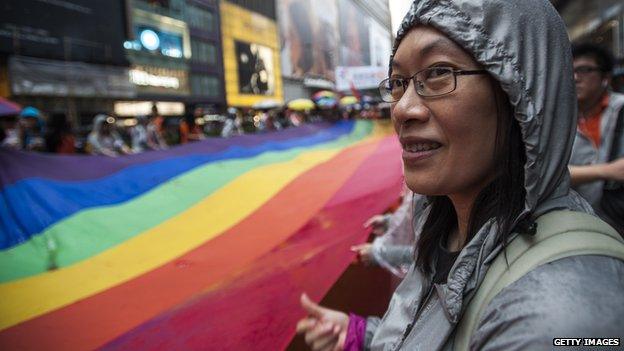
Nearly 2,000 gay rights activists marched through the streets of Hong Kong last November
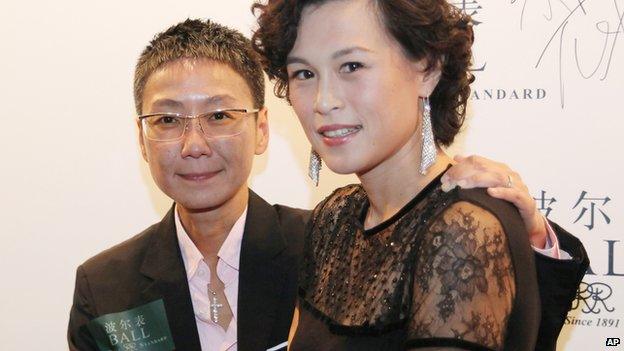
Hong Kong socialite Gigi Chao wrote an open letter to her multi-billionaire father in 2014, asserting her sexuality
'Second-class citizen'
Like other trailing spouses, QT had applied for a dependant visa, normally granted to the husbands and wives of expatriates working in Hong Kong.
Such a visa allows the bearer to work, to access public medical services and provides a path to permanent residency.
But two applications to the Immigration Department proved unsuccessful, she said, because officials refused to recognise her UK-registered civil partnership.
QT, who had worked in the hospitality industry for more than two decades, grew worried and upset.
"It was unfair. I felt like a second-class citizen," she said, adding it was especially galling to watch friends in heterosexual marriages receive dependant visas, enabling them to work.
With QT unable to work, financial pressures increased and their relationship suffered.
"We never fought but for the last few years, we've been fighting a lot."
Never previously a political activist, QT decided with a lawyer to apply for judicial review, a process by which a judge reviews the lawfulness of a decision made by a public body.
"We're saying the decision is unreasonable, that the immigration department misapplied the policy in the law," said her lawyer Michael Vidler.
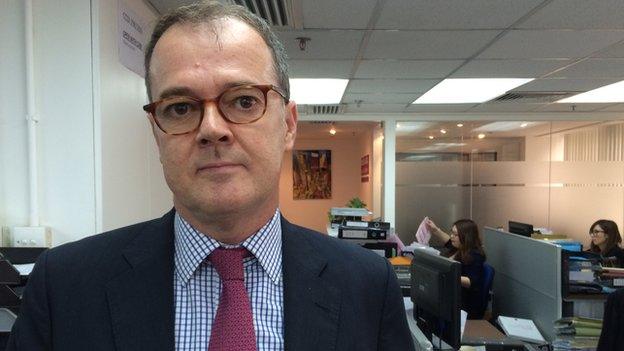
Michael Vidler has at least five other gay and lesbian clients trying to get visas for partners
"And we are saying it is in breach of the constitutional protections which protect against discrimination."
He revealed that after a judge granted permission in February for the case to move forward, an immigration officer decided to offer QT a dependant visa due to "humanitarian considerations".
"Even with the offer they made, it still wasn't equal treatment. I would still live in fear," QT said. "When I would have to renew my visa, they could always decline to renew it."
Hong Kong immigration officials told the BBC they would not comment on individual cases.
'About time'
Mr Vidler said he has at least five other gay or lesbian clients with dependant visa applications pending.

What does Hong Kong law say about trailing spouses?
People moving to Hong Kong on work or study visa are allowed to bring a spouse or children, external under 18 with them as dependents. Other applications may be considered if there is "reasonable proof of a genuine relationship" and the person with the work visa is able to support them.
As of May 2006, the approved dependents of people on work visas are allowed to take up employment without seeking permission.

Brian Leung, a gay rights activist for the Big Love Alliance, believes immigration authorities should be trying to attract the most talented workers, and their spouses, to Hong Kong.
"Of course we support the case. We need more court cases like this to shake up the status quo.
It's about time the immigration department addressed the discrepancy between same and opposite sex couples."
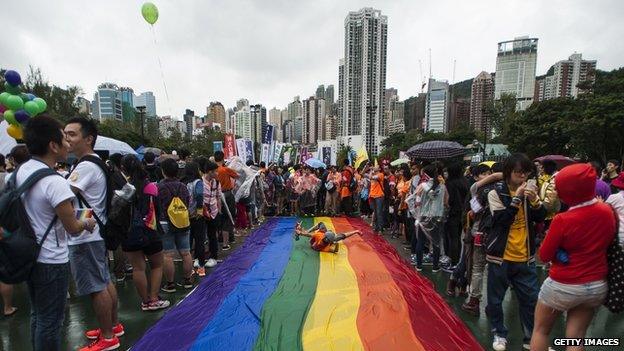
Is Hong Kong ready to embrace its gay rights movement?
Asked why they do not simply leave, QT said SS has a flourishing career and that they love Hong Kong.
"I am really nervous," she said about the judicial review, which has ironically helped her relationship.
"We've become really strong actually.
Now we are arguing less and trying to get through it one day at a time."
- Published20 February 2014
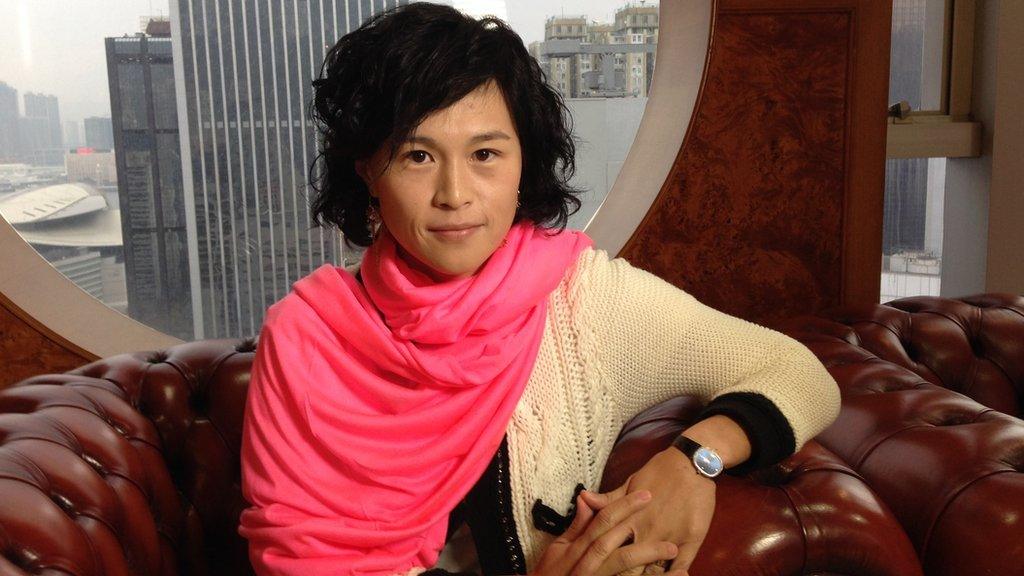
- Published12 June 2014
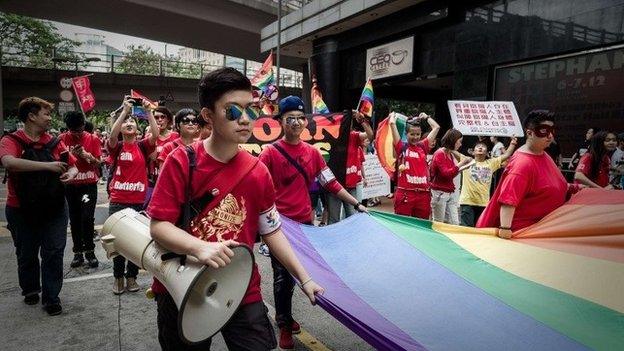
- Published29 January 2014
